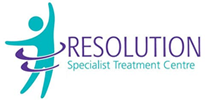We all know that brushing our teeth is of great importance if we want to keep them clean and healthy. But how often should we brush our teeth? What brand of toothpaste do you use? How do I keep my teeth clean for a longer period of time?
We have the answers to these questions so continue reading to find out which toothpaste is best, how often you should brush your teeth and other useful information.
Do you Brush Your Teeth Twice a day?
Of all the things you do for your teeth, brushing is one of the most important.
The longer you can spend each day cleaning your mouth by brushing and flossing, the better it will be for your oral health. Over time, plaque will build up on your teeth if they are not brushed regularly.
If left untreated, plaque can begin to eat into the surface enamel of the tooth; after time, this causes holes (cavities) to appear in teeth that need filling by a professional dentist. Plaque also makes teeth more vulnerable to staining from food and drinks.
Why Should You Floss Regularly for Healthier Gums and Fresher Breath?
Your teeth are meant to work as a team, which is why you need to floss as well as brush.
Using a toothbrush can clean the top and outer areas of your teeth, but will miss spots in between teeth. Plaque loves to grow in these hard-to-reach places, so you must use an alternative method such as dental floss or interdental brushes to keep it away.
Flossing also helps remove food particles from between teeth that haven’t been reached by your toothbrush. Of course, brushing twice a day and proper home care is essential for your oral health, but sometimes brushing just doesn’t cut it.
Drink Water to Keep Your Mouth Moist and Reduce Your Cavity Risk
Your mouth is not meant to be bone-dry, so you should always have a glass of water nearby.
Staying hydrated will also save you from headaches and fatigue by flushing out toxins in your body. When the body does not get enough water, saliva levels will decrease, which can make your mouth an ideal environment for plaque to grow.
It’s best to keep your mouth moist throughout the day if possible; this means drinking plenty of water and avoiding caffeinated or sugary drinks that may cause a dry mouth. If you’re able to drink at least eight glasses of water each day, it’ll help wash away any harmful bacteria that might trigger tooth decay.
After Eating or Drinking Acidic Foods, Chew Sugarless Gum
Eating acidic foods and drinking acidic beverages can cause acid erosion of the teeth, which is when the enamel begins to dissolve because of continued exposure to acids.
This eventually leads to cavities, but luckily, chewing sugarless gum creates saliva in your mouth that will help remove harmful acids from your teeth. If you don’t like the taste of artificial sweeteners found in most sugarless gums, look for a brand that uses natural Xylitol instead.
Use an Electric Toothbrush With Soft Bristles Instead of Manual Brushing
Did you know that the longer and harder you brush your teeth with a manual toothbrush, the greater the damage to your gum line will be?
Electric toothbrushes are great at removing plaque because they provide more than just back-and-forth or circular strokes. Instead, electric toothbrushes oscillate by using various motions that break up plaque easily.
Your dentist can recommend an electric toothbrush brand if you think this would help increase the time spent brushing each day. The soft bristles found on many electric brushes also protect gum lines from becoming red or swollen, helping to prevent periodontal disease.
Visit the dentist every 6 months.
Summary
We’ve talked about how important it is to keep your mouth healthy and clean.
With all the advice we have provided, you should be ready for a dental checkup soon! If you need help with anything or want more information on our services, contact us.

